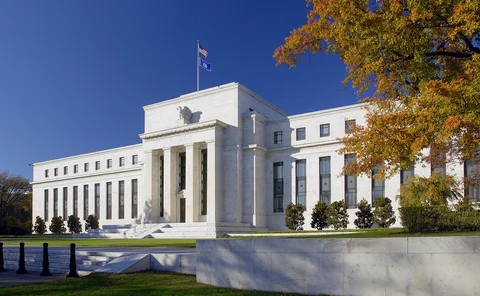Regulation
Fewer central banks have a centralised risk unit
Share of institutions deploying this structure falls from 66% to 48.5%; op risk overtakes rep risk as top concern
Papua New Guinea flights grounded amid FX dispute
Central bank accuses fuel supply firm of failing to repatriate foreign exchange earnings
Rethinking the CCyB
As central banks rush to replenish bank capital reserves, the countercyclical buffer may need some fine-tuning
2022: The year in review
The invasion of Ukraine left central banks facing yet another exceptional set of challenges. Central Banking looks back at the stories that made the biggest impact this year
Kentucky restaurant sues Fed
Restaurant latest plaintiff to argue that debit interchange fees are illegally high
European rates: Norway expects more tightening next year
Switzerland raises rates 50bp and Denmark raises rates in line with ECB
Capturing moral hazard: the Scarlet Pimpernel of finance
Moral hazard exists in many contexts, but can be ‘damned elusive’ to capture, writes Jesper Berg
ECB adopts new ethics rules on trading
New rules ban holding of individual equities, similar to Fed reforms
Bank of Russia eases disclosure rules on digital asset firms
Moves designed to ease sanction pressure, as Nabiullina signals use of crypto for international trade
Law change set to make Fed reveal holders of master accounts
Amendment grew out of dispute between Republican senators and Kansas City Fed
Proportionality in bank regulation: striking the right balance
The ‘final’ Basel III framework contains elements designed to make the rules fairer while reducing regulatory arbitrage. This means careful analysis is required when making any proportionality adjustments in the EU single rule book, writes Maurizio…
Earnings power of economists remains above GDP per capita
Emerging market professionals earn lowest median salary, but incomes still more than double national average
Most institutions use time-series models for forecasting
Use of models differs across jurisdictions by income size
More than half of institutions favour semi-structural models
Just 35% of institutions include financial sector in key modelling
Central banks forecast GDP less accurately than inflation
Over half of central banks reviewed models in a bid to project more accurately
Majority of central banks prefer economists with master’s degree
Economists are sponsored more for training than for PhDs
Armenia’s Galstyan calls for a new framework to tackle uncertainty and nonlinearities
Central Bank of Armenia governor says central banks can start to regain credibility by admitting their mistakes. This could include employing a risk-management approach to monetary policy aimed at avoiding nonlinear ‘dark corners’ and placing much less…
Economics teams constitute just a fraction of central banks’ total workforce
Most institutions have more policy economists than research colleagues
Staff with PhDs make up 21.3% of average economics department
Four-fifths of advanced economy institutions sponsor economists to undertake PhD qualification
Central banks judge success of research by number of publications
Inflation and exchange rate most topical issues for central banks
Use of centralised data services increases across institutions
Rise of central data teams has gone hand in hand with greater use of alternative data
Alternative data used at most central banks
Non-traditional data such as Google searches widely used to support research and forecasting














